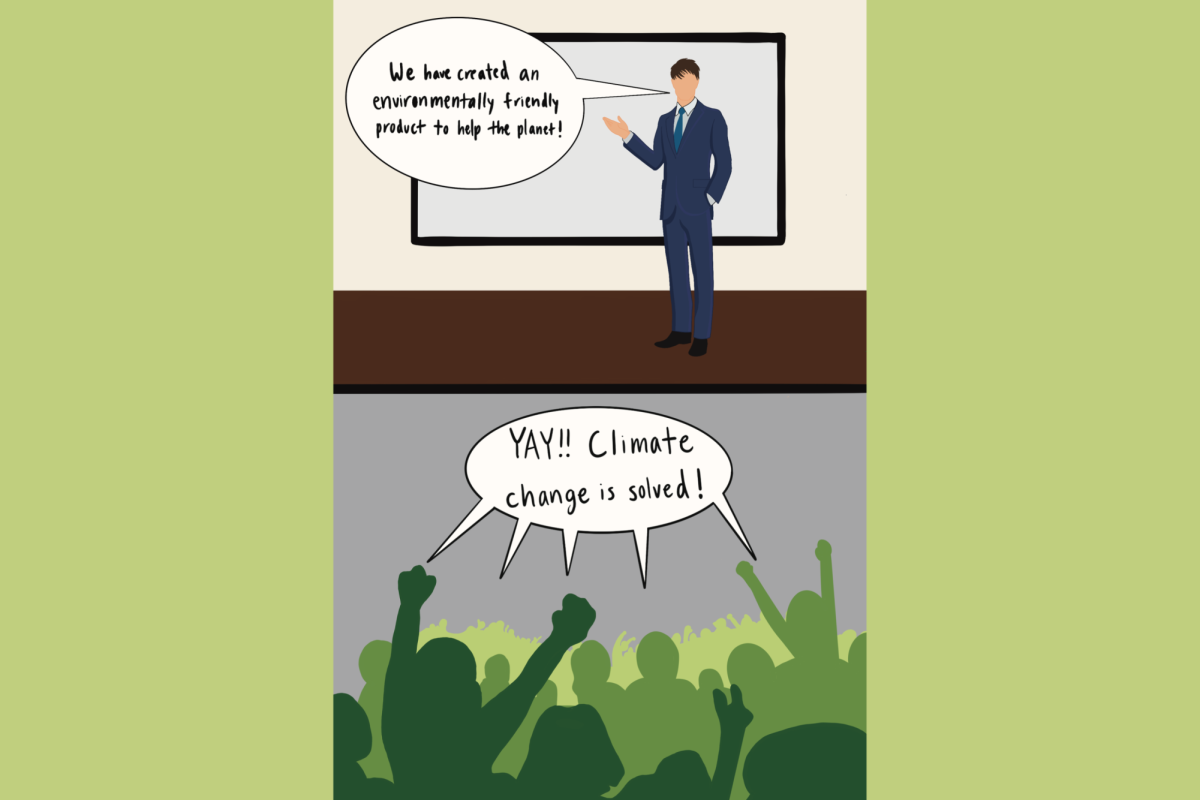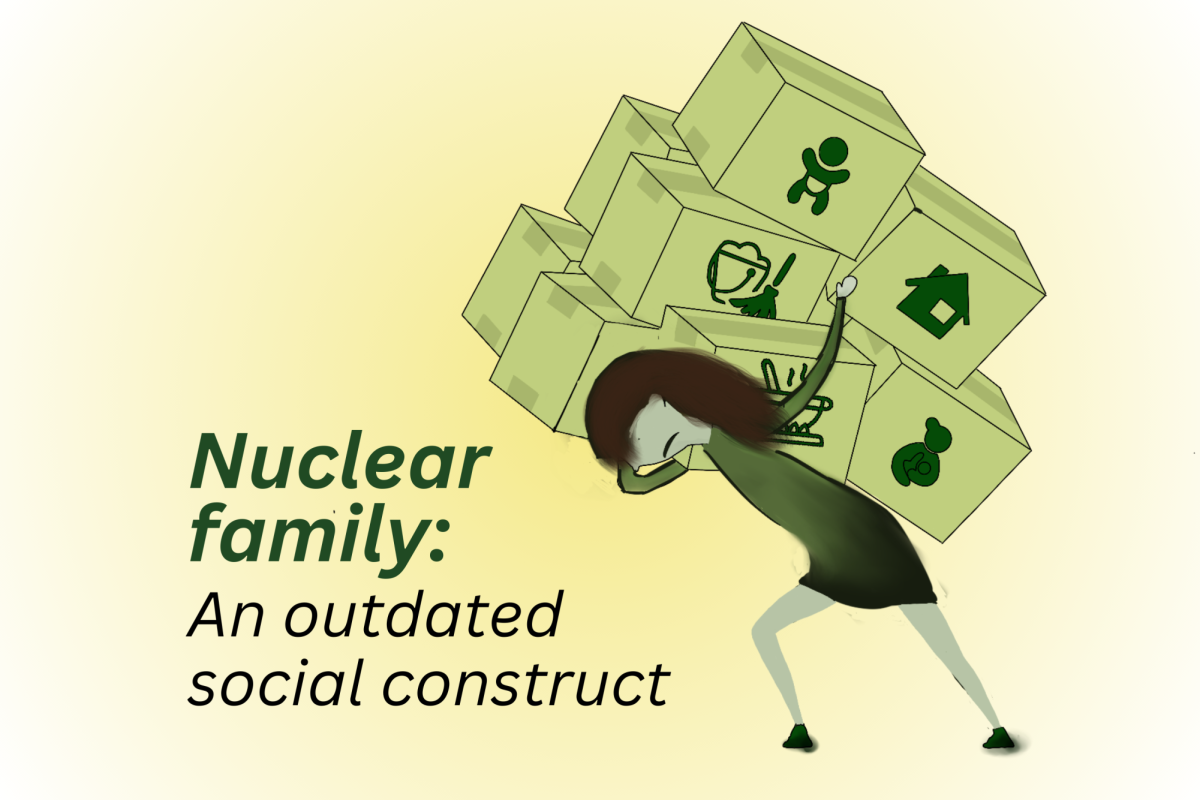Innovators are constantly pushing out new green technology with promises of reducing carbon footprint. But when trying to reach net-zero carbon emissions, small actions won’t make the cut. With threats from climate change on the rise, there is reason to be concerned about the corporate-driven approach in which society is choosing to handle the impact of climate change.
In August and September 2023, weather and climate-related natural disasters exceeded $1 billion in damages. California suffered from the Category 4 Hurricane Hillary which accumulated roughly $600 million in damages. Wildfires with extensive return periods are indicators for just how dire our need for change is. The estimated intervals between natural disasters of the extremity that they’re occuring at are becoming shorter and shorter.
“Many people do not realize how detrimental climate change is and that they are living in the period of time where, if we don’t take action right now, the repercussions will be endless in the future generations,” Conservation Action Association officer Jennifer Chua said.
To face these problems, businesses have taken it upon themselves to innovate new green technology, which gives rise to a common issue: in the constant search for new solutions, we lose our sense of direction. Green innovations are helpful in covering the smaller components of climate change, such as transportation and household chores. However, technological innovation cannot fully mitigate the problem — in the grand scheme of global warming, these innovations aren’t nearly enough to decrease one’s carbon footprint. By the time these innovations can be implemented full scale, years or even decades later, it will be too late to foster concrete change on the environment. The real solution to climate change would require a worldwide change in consumption patterns.
Although taking the steps as a consumer to become more aware of the climate impacts of a product is important, many companies capitalize on the growing demand for “greener” innovations and present themselves as such under false environmental premises. One example would be Elon Musk, who has brought Tesla to the forefront of Electric Vehicle sales, which have been marketed largely through greenwashing. But just how green is Tesla? With both street-credibility and green-credibility it seems like the Tesla is a sweet ride that just happens to be environmentally friendly. EVs are powered by rechargeable electric batteries. However, local grids rely on dirty fuel to generate electricity, the net difference in carbon emissions is no different from that of a gasoline car.
“It’s morally corrupt to manipulate consumers into buying more products under the guise of sustainability,” Chua said. “And it’s especially wrong to to do that for the benefit of sales: good business, bad ethics.”
Another important aspect when considering the capitalization of greenwashing is the implementation of carbon credits. Carbon credits were devised as a method to reduce the amount of greenhouse emissions companies produce. When more environmentally friendly companies like Tesla end up with an excess of carbon credits, they can sell them to other companies for monetary gain. Tesla’s sales in carbon credits has reached $1.78 billion in revenue. The issue with this is that carbon credits have allowed companies to essentially stay dirty, as long as they have the funds to stay that way.
Tesla isn’t the only example of a superficially green market strategy. With the consumer electronic market growing each year, finding ways to recycle electronics in an ethical and “green” manner is difficult. With each new iPhone release, millions of people toss out their old phones in favor of the newer model. With the sudden spike of e-waste, recycling hasn’t been able to catch up. Only about 15% of e-waste ends up being recycled, so falling back on the idea that your phone will just be taken apart and repurposed is incorrect. Because the production of electronics requires vast amounts of energy and resources to manufacture, recycling of e-waste is not efficient enough to the point where we can rely on it completely.
The sad reality is that most of what consumers can do is not nearly enough to make up for the effects that climate change already has on rising temperatures and weather extremes. Drastic decreasing of fossil fuel use and emissions would only spare the Earth of future catastrophic events, but would not reduce Earth’s temperature. So what should the future of climate action look like?
By becoming reliant on companies to create climate change solutions, people lose sight of actions that can be taken by themselves. For instance, one simple way to cut down on carbon emissions is to avoid taking long flights for travel — a round trip from California to Hawaii creates the same amount of carbon emission as the average person driving for a quarter of a year. Another possible measure is cutting down on single use plastics. This not only reduces pollution, but it also reduces the demand, and therefore the production of more plastics. It’s important that consumers stay educated about the impacts their actions make on the environment.
“Be the change. A little goes a long way. One person switching to a reusable straw will not make a dent in climate change, but the awareness of our drastic situation and sharing these sustainable practices will unite us to combat the problem that we created,” Chua said.




































































